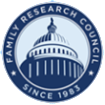In another victory for the conservative movement and keeping kids safe, the U.S. Supreme Court denied an emergency appeal to block a recent Texas law that requires explicit adult websites to verify the ages of their users in order to protect minors from harmful content.
The emergency appeal was filed by the “Free Speech Coalition” (FSC), a trade association for the adult entertainment industry, whose vision is creating “a world in which body sovereignty is recognized, sexual expression is destigmatized, and sex work is decriminalized.” The organization is embroiled in legal battles across the country due to the recent surge in bipartisan age verification bans passed by state legislatures. So far, 17 states have passed some type of age verification measure, though several will not go into effect until later this year or early next year.
Recently, even a California legislative committee approved an age verification bill, showing just how bipartisan this issue can be. It shouldn’t be controversial to protect kids from sexually explicit content.
In South Dakota, Representative Bethany Soye introduced HB 1257, modeled after the original age verification legislation crafted by Louisiana in 2022. The bill would have required adult websites to “implement a system which would verify the age of the online user” without saving or storing any personally identifiable information. The bill also would have enabled parents to take legal action against any websites that “continue to allow unfettered access to their child.”
Unfortunately, the bill was effectively hijacked and amended in the Senate to create an interim study committee on minors’ access to pornographic material, and nothing more. The legislature will continue to monitor the issue over the summer through the study committee, and there remains hope that the initial bill will be passed in the next session.
The Texas law, signed by Governor Greg Abbot last June, was temporarily blocked in September by U.S. District Judge Alan Ezra, who ruled the law likely violated the First Amendment. In March, a panel on the 5th Circuit Court of Appeals reversed that ruling, and the case was then appealed to the Supreme Court. Although SCOTUS denied the emergency appeal to temporarily block the Texas law, the Justices may still decide to review the case.
However, conservatives are hopeful that the Supreme Court’s denial of FSC’s emergency appeal suggests that they are inclined to agree with the 5th Circuit’s original ruling, which upheld the Texas law.
This is an issue we cannot afford to ignore – the dangers of the internet are only growing year by year, and we must find a way to protect our children from it. As Texas argued to the Supreme Court, there is an “unprecedented explosion of access to hardcore pornography by kids,” which is “creating a public health crisis.” If you feel as strongly about this issue as we do, you can use our voter guide website DakotaVoter.com to see where candidates stand on this issue.


